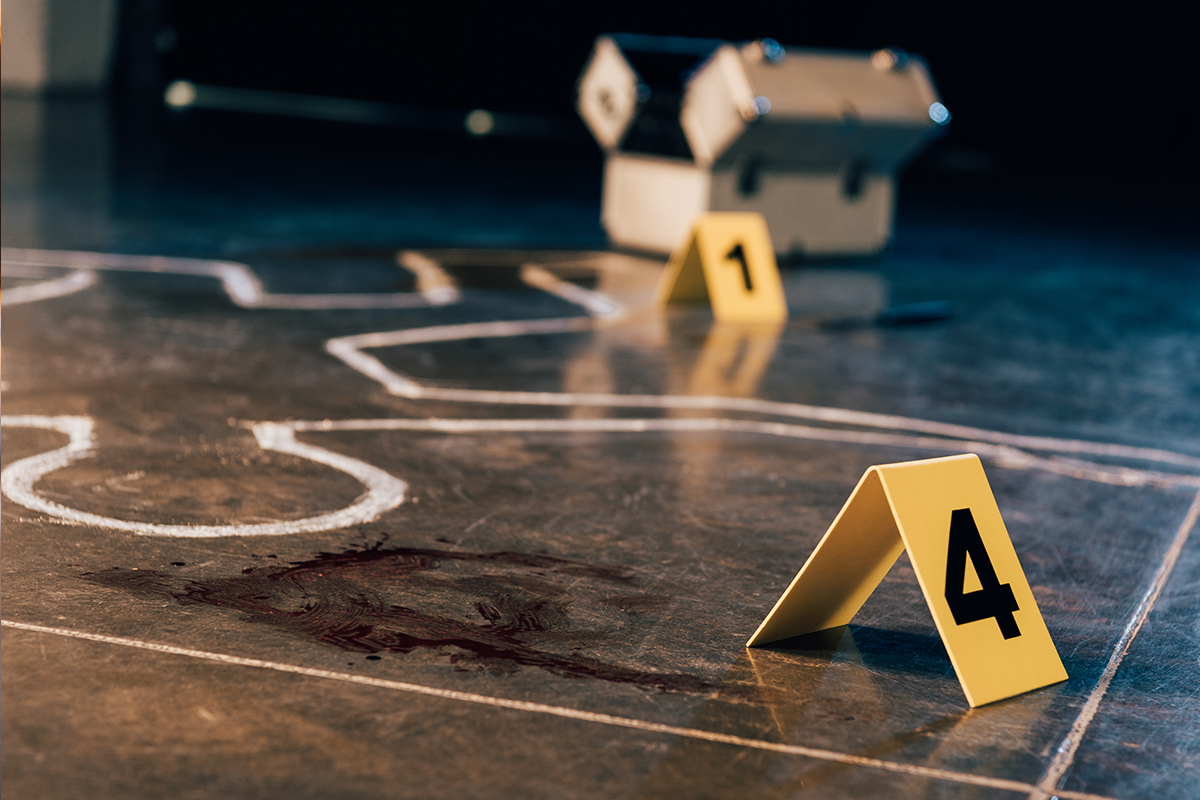If you are facing manslaughter charges, you need a criminal defence lawyer in Calgary to look at your case as soon as possible.
In Canada, Section 234 of the Criminal Code says manslaughter is when someone accidentally kills someone else. For a deeper understanding of how these charges are approached legally, you might also want to review our detailed insights on the court process in Calgary.
Manslaughter is not the same as murder, because the accused doesn’t plan or want to kill someone.
There are two main types of manslaughter: unlawful act manslaughter and criminal negligence manslaughter. Unlawful act manslaughter happens when someone commits an illegal act that unintentionally results in death. Criminal negligence manslaughter occurs when a person’s extremely careless actions cause someone’s death.
Manslaughter is always charged as an indictable offence, which is a more serious type of crime.
There is no minimum sentence, but the most severe punishment is life in prison. To understand the range of penalties and factors that influence sentencing, see our Criminal Sentencing Calgary guide. If a gun was used in the offence, though, there is a mandatory minimum of four years; in such cases, exploring our information on firearms offences might provide additional clarity.
Strategic Criminal Defence is a top Google-rated criminal defence firm in Calgary, with over 500 5-star reviews. Our firm, and our experienced legal team, have defended clients in over 10,000 criminal cases. Leveraging our extensive network of lawyers and decades of experience, we craft defence strategies to help those accused of manslaughter beat the charge.
The lawyers at Strategic Criminal Defence are both highly experienced and dedicated to defending your rights and future in the face of these charges. Contact a lawyer today by calling (403) 719-6410 or visiting our Contact Us page.
Key Takeaways
- Section 234 of the Criminal Code says that manslaughter is killing someone without meaning to do so.
- There are two main kinds: criminal negligence manslaughter and unlawful act manslaughter.
- It is always a crime that is charged indictment, which is the most serious type of criminal charge.
- Life in prison is the longest sentence possible.
- There is a minimum sentence of four years if a gun was used.
- It is hard but possible to get bail for manslaughter, and it usually comes with strict conditions like:
- House arrest or strict bedtimes
- Regularly reporting to the police
- No talking to witnesses
- Giving up your passport and guns
- It is possible to win a manslaughter case, especially if you can show:
- The act was not done on purpose, and there was no criminal negligence.
- The death was caused by someone else.
- The Crown can’t prove that the crime happened.
How Our Lawyers Help With a Manslaughter Charge
A Strategic Criminal Defence lawyer can help you with legal problems even before you get arrested.
- During this hard time, we can advise you on all communication with the police.
- We can get important evidence that could help your case, like witness statements, medical reports, and a visit to the crime scene.
- When someone is charged with manslaughter, pathologists, toxicologists, and experts on the use of force can be very helpful. Our lawyers know who to hire as experts.
- It’s very hard to understand how the criminal justice system works when it comes to serious crimes like manslaughter.
- We can help you with bail hearings, court cases, and initial investigations. We can help you with your trial.
- This means asking witnesses questions, looking at the evidence the prosecution has, and making your case in order to get you the best result.
Examples of Manslaughter Charges
In Calgary, you could be charged with manslaughter for various situations:
- One person hits another person in a bar fight, and that person falls and hits their head on the ground, which later kills them. The person who threw the punch didn’t mean to kill, but they did commit manslaughter by doing so.
- A person buys drugs from a dealer that have fentanyl in them and then dies from taking too much. The dealer didn’t want to kill their customer, but giving them drugs that killed them could get them charged with manslaughter.
- A worker dies because the construction site supervisor doesn’t give them the right tools or follow safety rules. This crime of carelessness that led to death could be considered manslaughter.
Consequences of a Manslaughter Charge
In Canada, manslaughter is considered a very serious offence. Due to this, it can only be charged by indictment.
- The maximum punishment is life imprisonment, reflecting how seriously the justice system takes the causing of another person’s death, even without intent to kill.
- Most of the time, there is no minimum sentence for manslaughter. However, if a gun was used, there is a minimum of four years a person must spend in prison.
- If you are convicted of manslaughter, the consequences for your life will be broader than just the legal ones.
- Having a criminal record for a crime like this can make it very hard to find work, a place to live, and travel abroad in the future.
- Also, some countries won’t let people with violent criminal records in at the border.
Manslaughter Charge Defences
If you’re charged with manslaughter, there are a number of legal defences that could help you. We can help you find the best defences for your case.
- Self-Defence: If you thought you were in danger and your actions were reasonable given the situation, the Criminal Code says you might be able to use deadly force. If someone attacked you with a weapon and you pushed them away, making them fall and hit their head, you might be able to say that you were acting in self-defence.
- Death Without Criminal Negligence: Sometimes someone dies because of a real accident and not because someone was careless. This defence says that even though you may have caused the death, you weren’t doing anything illegal or careless at the time. You could say that the death was an accident and not criminal negligence.
- Problems with Causation: In any manslaughter case, it’s very important to show that what you did really did cause the death. The causation defence says that this link isn’t real and that something else killed the person. If someone died after a fight with you, but an autopsy shows that they had a heart condition that was the main cause of death and not any injuries you caused, you could say that your actions didn’t cause the death.
Manslaughter Charge Investigation
The police first look closely at the scene of the death when they are examining a possible manslaughter file.
- Officers document pictures of everything, and collect physical evidence like weapons, possible DNA samples, and fingerprints from the area.
- An autopsy can help figure out what killed someone. This is important because it must be shown that someone else was not to blame instead.
- Investigators look for proof that someone was careless, negligent, or broke the law and caused the death.
- Police might be able to get evidence, such as, phone records, text messages, social media posts, and video from security cameras. These could show what happened before, during, and after the death.
- They might also get in touch with experts like blood spatter analysts or accident reconstructionists.
Bail Conditions for Manslaughter Charges
If you are charged with manslaughter, you can get bail, but you will have to follow strict rules.
- Most of the time, people who are charged with manslaughter have to stay home or follow strict curfew rules. This means that you can only leave your approved home for medical appointments, court dates, or meetings with your lawyer.
- You might also wear an electronic ankle bracelet that tells people where you are.
- You won’t be able to talk to anyone who is involved in the case. Including people like the victim’s family or witnesses. The court will also take away your weapons and your passport so you can’t leave the country.
- People who are charged with manslaughter usually have to check in with the police or a bail supervisor on a regular basis. Sometimes even every day or week. You probably won’t be able to drink or do drugs, and you might have to take random substance tests to make sure you are following the rules.
- The court may set geographical limits on you, which means you can’t go to certain places, especially those that have to do with the crime or the victim. While you wait for your trial, you must follow all of your bail conditions to the letter. If you break any of them, you could go back to jail right away and face new charges.
For more information, visit our page on The Bail Hearing Process in Calgary.








